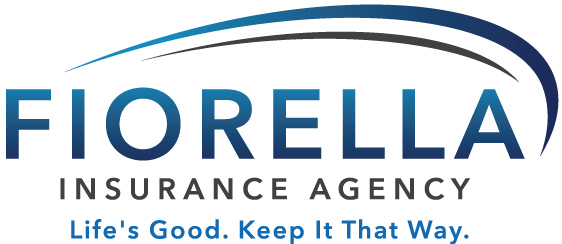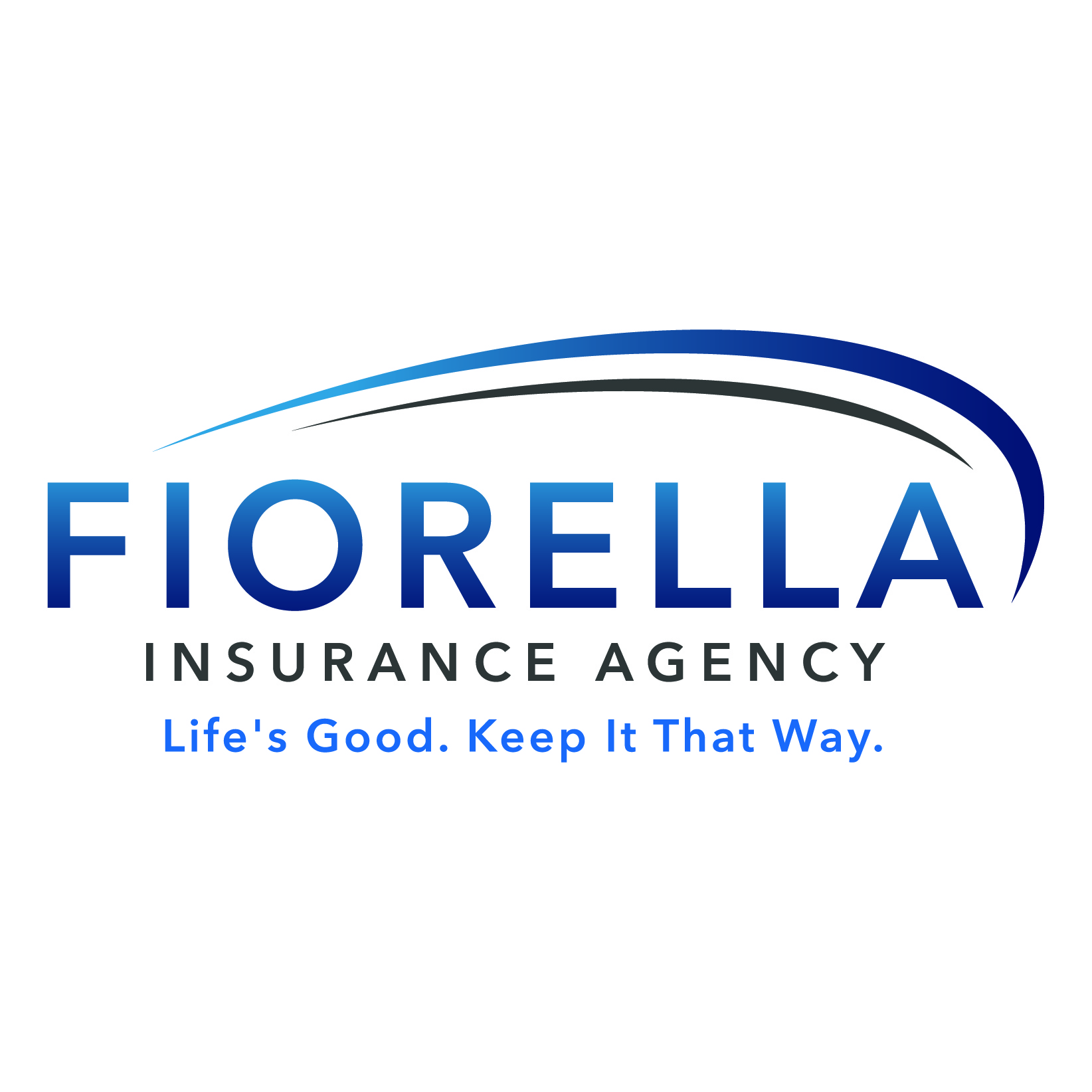Can you pay health insurance premiums with HSA? This is a question that many individuals grapple with, especially those managing high-deductible health plans.
An HSA can be a valuable asset for financing eligible medical costs. However, understanding its nuances and limitations is crucial.
Navigating the intricacies of HSAs can seem daunting at first glance. But once you get the hang of it, these accounts offer significant tax advantages and financial flexibility.
So let’s delve deeper into this topic: Can you really use your HSA to cover health insurance premiums? And if so, under what circumstances?
Contact Fiorella Insurance today for your free health insurance quote.
Table Of Contents:
- Understanding Health Savings Accounts (HSAs)
- HSA Contributions and Tax Benefits
- Using Your HSA Funds Effectively
- The Flexibility of Health Savings Accounts
- Can You Pay Health Insurance Premiums with HSA? A Guide
- Steering Through High-Deductible Health Plans With Your HSA
- Can You Pay Health Insurance Premiums with HSA? A Guide
- Deciphering Qualified Medical Expenses for HSAs
- FAQs in Relation to Can You Pay Health Insurance Premiums With Hsa
- Conclusion
Understanding Health Savings Accounts (HSAs)
A HSA, often referred to as a Health Savings Account, is an advantageous system intended to assist you in managing healthcare costs. This tax-advantaged account allows you to set aside pre-tax money for qualified medical expenses.
The primary role of HSAs is in complementing high-deductible health plans. These plans, while having lower premiums, come with higher deductibles compared to traditional insurance policies and are thus well-suited for individuals who have minimal healthcare needs.
Navigating the Tax Benefits of HSAs
Funds deposited into your HSA aren’t subject to federal income taxes at deposit time and can grow tax-free over time as well. In essence, this gives you more financial power when dealing with potential medical costs by providing an effective way of managing these expenses without feeling the pinch on your current finances too much.
Beyond immediate healthcare needs, what makes HSAs stand out from other financing options available today is their flexibility when it comes to paying eligible expenses. You can save up your contributions over time and use them later – even during retirement.
Leveraging Your HSA For Long-Term Goals
This ability turns HSAs into strategic tools that offer both present-day benefits as well as future advantages, such as supplementing retirement funds using saved-up contributions which continue growing free from taxation until withdrawal.
If utilized effectively alongside a compatible high deductible plan, they could be key players in not just meeting but also potentially exceeding one’s long-term financial goals pertaining specifically to managing healthcare-related expenditures.
HSA Contributions and Tax Benefits
High-deductible health plans, when combined with a Health Savings Account (HSA), can provide an effective way to manage healthcare costs while also offering tax benefits. One of the key benefits they offer is their tax advantages.
The contributions you make to your HSA are pre-tax, meaning they lower your taxable income. Plus, any growth within the account – through interest or investments – remains untaxed as long as it stays in the account.
Contribution Limits for 2023 and 2023
Navigating contribution limits set by the IRS can seem daunting, but understanding them is crucial to maximize these tax benefits. These annual caps differ based on whether you have individual coverage or family coverage under a high-deductible plan.
In 2023, those with individual coverage can contribute up to $3,650 while families get an increased limit at $7,300 (source).
Moving into the year 2023 sees a slight increase due to inflation adjustments; individuals will be able to save up to $3,700, whereas families see an increment up to $7,450 (source). It’s also worth noting that if someone aged 55 or older has not enrolled in Medicare yet, then they may make additional “catch-up” contributions of up to $1,000 annually until age 65 (source).
- Tax-Saving Potential:
With these contribution limits being fairly generous, particularly considering potential catch-ups available from age 55 onwards till 65, HSAs provide a substantial opportunity to reduce one’s taxable income while simultaneously building a nest egg for future qualified medical expenses.
- Paying Qualified Medical Expenses:
One important aspect to remember here, however, is that only withdrawals made to pay eligible healthcare costs remain entirely free from taxation at both the federal and state level. This means keeping track of all such expenditures becomes vital to ensure maximum utilization of this benefit offered to Health Savings Account holders.
Key Takeaway:
HSAs offer significant tax benefits, with pre-tax contributions and untaxed growth within the account. Understanding IRS-set contribution limits is key to maximizing these perks. With generous caps, especially for those 55-65 years old, HSAs can reduce taxable income while building a healthcare nest egg.
Using Your HSA Funds Effectively
While you typically cannot use your HSA funds to pay for private health insurance premiums, there are some exceptions worth noting.
Paying Medicare Expenses with Your HSA
Enrolled Medicare members can effectively leverage the benefits of an HSA. Per IRS regulations, Part B and Part D prescription drug coverage can be paid for using your tax-exempt HSA funds without any penalties.
Once enrolled in Medicare, contributions to your HSA are no longer eligible for pre-tax deductions. Therefore, it’s crucial to plan ahead and make strategic decisions about how to use your accumulated savings efficiently.
Covering Long-Term Care Insurance Premiums
HSAs offer unique advantages, such as the ability to cover long-term care insurance premiums with pre-tax funds from your account, provided that the policy meets the federal standards set by IRS Code Section 7702B and is considered “tax-qualified”.
The amount of premium that qualifies as a medical expense varies based on age. Individuals between the ages of 55 and 60 may include up to $1,530, while those between the ages of 60 and 65 may include up to $4,090, as stated in Investopedia’s guide on HSAs. Consulting a specialist can provide further assistance in obtaining accurate quotes based on factors such as family history and current health status.
The Flexibility of Health Savings Accounts
HSAs offer the advantage of being more flexible than Flexible Spending Accounts (FSAs), since funds left unused within your HSA at year-end roll over to the next, allowing you to save for future medical expenses. Unlike Flexible Spending Accounts (FSAs), HSAs do not operate under the “use it or lose it” policy.
This means that any funds left unused within your HSA at year-end roll over to the next, providing you with an opportunity to save for future medical expenses. This feature is especially advantageous for those with high-deductible health plans, as it allows them to plan and budget for large out-of-pocket expenses while taking advantage of the rollover capability.
Beyond this, the rollover capability allows individuals to use an HSA as a long-term savings vehicle. You can accumulate funds in your HSA across several years without worrying about losing them due to non-usage within a specified timeframe, making HSAs valuable tools for saving towards retirement healthcare costs.
Saving Your Tax-Free Money Over Time
Another aspect of HSAs’ flexibility lies in how one chooses when and what amount from their account is spent on qualified medical expenses according to IRS guidelines. There’s no stipulation forcing immediate withdrawal post-incurrence of eligible healthcare costs.
You could instead choose to pay those bills out-of-pocket while allowing your HSA balance to grow tax-free. Later down the line, perhaps during retirement when income may be lower, you can reimburse yourself from your HSA for past eligible expenses paid out-of-pocket, provided proper documentation has been kept. This effectively utilizes pre-tax money saved through contributions made into these accounts over time.
Tailoring Use Of Funds To Meet Medical Expenses As Needed Most
Your ability extends beyond choosing just when withdrawals occur; there’s also freedom regarding which type of qualifying expense gets covered by using up accumulated amounts stored away safely inside these accounts. If faced with multiple types of medical expenditures but limited resources available currently inside such savings plans, prioritizing higher-cost needs like hospital stays or surgeries might make sense compared to less urgent ones such as routine check-ups or prescription refills, which could potentially get postponed until more finances become available again later on after additional rounds of new deposits are
Key Takeaway:
HSAs offer flexibility and long-term savings potential, allowing unused funds to roll over year after year. They can be used as a retirement healthcare fund, with tax-free growth and no forced immediate withdrawals for medical expenses. Plus, you have the freedom to prioritize your medical needs based on available HSA resources.
Can You Pay Health Insurance Premiums with HSA? A Guide
Understanding HSA Tax Benefits
Health Savings Accounts (HSAs) offer unique tax benefits that can help you save money. Contributing to your HSA with pre-tax dollars means you can save on taxes for the amount of money you put in. Additionally, any interest or investment gains on your HSA funds are tax-free.
One of the key advantages of an HSA is that withdrawals for qualified medical expenses are also tax-free. This includes expenses such as doctor visits, prescription medications, and medical procedures. However, it’s important to note that not all expenses are eligible for tax-free withdrawals.
Using HSA Funds for Health Insurance Premiums
While HSAs can be used to pay for a wide range of medical expenses, including deductibles and copayments, health insurance premiums generally cannot be paid directly from your HSA. However, there are some exceptions.
If you’re collecting jobless benefits from the government, it may be possible to utilize your HSA money for health insurance premiums. Additionally, if you have COBRA continuation coverage after leaving a job, you can use your HSA to pay for the premiums.
It’s important to consult with a tax professional or financial advisor to understand the specific rules and regulations regarding the use of HSA funds for health insurance premiums in your situation.
Optimizing Your HSA Funds
To make the most of your HSA funds, it’s important to contribute the maximum amount allowed each year. For 2023, the contribution limits are $3,600 for individuals and $7,200 for families. If you are 55 or older, you can make an additional catch-up contribution of $1,000.
By contributing the most you can, you will gain all of the tax benefits and be sure to have enough money for medical costs. It’s also wise to review your health insurance plan in order to maximize the tax benefits and ensure adequate coverage of medical costs.
Key Takeaway:
While HSAs offer tax benefits and can cover various medical costs, they generally don’t pay for health insurance premiums, barring a few exceptions. Maximize your HSA by contributing the annual limit to reap full tax advantages and ensure ample funds for healthcare needs.
Steering Through High-Deductible Health Plans With Your HSA
HDHPs can be intimidating cuz of their higher out-of-pocket expenses, but usually come with lower monthly premiums. Your HSA, a tax-advantaged account tailored for HDHP owners, can be an incredibly helpful asset.
In essence, budgeting effectively using your HSA funds can help alleviate some of the financial burdens associated with an HDHP.
Tactfully Budgeting Medical Costs Using Your HSA Funds
To navigate through a high-deductible health plan successfully involves strategic planning and understanding potential healthcare costs throughout the year. Regular contributions towards reaching this goal are more manageable than making lump sum deposits all at once.
- Maintain regular reviews and adjust contributions based on changes in health status or family situation. This will prevent unexpected shocks when dealing with unforeseen medical bills.
- Aim to accumulate enough money equal to or close to the annual deductible limit of your HDHP policy. By doing so, if major healthcare needs arise during any given year, there’s already a safety net available within reach through accumulated funds in one’s own account.
Leveraging Preventive Care Benefits
Remember that preventive care services are usually covered 100% by most insurance companies even before meeting the deductible limit – take advantage of these benefits whenever possible. Not only does this maintain good overall health, but it also reduces future expenditure on treating chronic conditions developed due to a lack thereof earlier.
Additionally, keeping track of what counts as qualified medical expenses according to IRS guidelines encourages readers to know exactly how much they can reimburse themselves from their HSAs – thus creating another layer of safeguard against unforeseen circumstances down the line in later years of life. It also ensures sufficient savings are built up and ready to use whenever needed right away, without worrying about sudden huge bill payments anymore.
Key Takeaway:
Don’t let high-deductible health plans intimidate you – your HSA is a lifeline. By regularly contributing to it, adjusting based on changes in health or family situations, and maximizing preventive care benefits, you can navigate healthcare costs with ease. Remember: an ounce of prevention is worth a pound of cure.
FAQ
Deciphering Qualified Medical Expenses for HSAs
The Internal Revenue Service (IRS) outlines a detailed list of qualified medical expenses that are eligible to be covered using your HSA funds. The IRS regards payments for medical treatments, examinations and preventive care related to any bodily part or function as eligible expenses with an HSA.
Paying for Prescription Medication and Over-the-Counter Drugs with Your HSA Funds
Your prescribed drugs form an integral part of managing your overall health condition; hence, their cost is considered a qualified expense by the IRS. The price tag attached to over-the-counter medicines like pain relievers or allergy medication also falls into this category if used for treating an existing ailment.
Insulin is a regular component in maintaining your blood sugar levels, its cost also qualifies, regardless of whether it was bought without a prescription.
CARES Act changes, effective January 1st, 2023, have further expanded eligibility criteria, including all OTC drugs, irrespective of whether they were utilized for illness management.
The Cost of Medical Equipment and Supplies in Your Eligible Expense List
Necessary equipment purchases like wheelchairs count within the guidelines set by the IRS. Smaller items might qualify depending on use case scenarios, such as bandages, while healthcare supplies could potentially add up those figures too based on specific situations.
Navigating HSA expenses? IRS-approved uses include disease diagnosis, treatment prevention. Prescription meds, OTC drugs (thanks to CARES Act changes), and necessary medical equipment are all eligible.
Can I use my HSA to pay for health insurance premiums?
Typically, you can't use your HSA to cover regular health insurance premiums. Exceptions include COBRA coverage, Medicare premiums, and health coverage while receiving unemployment benefits
Can I use HSA to pay insurance premiums if I retire early?
No, unless you're enrolled in COBRA or a similar continuation of coverage plan. Regular health insurance premiums are not considered qualified medical expenses under HSAs.
Can I use HSA to pay long-term care premiums?
You can utilize your pre-tax dollars from an HSA account towards “tax-qualified” long-term care insurance policy payments within IRS-prescribed limits.
Can you pay health insurance premiums with FSA?
No, FSAs generally do not allow for payment of standard monthly health insurance premium costs. They primarily cover out-of-pocket healthcare expenses.
Are there Tax advantages
They offer tax advantages and can be used to pay for qualified medical expenses, but not typically private health insurance premiums.



